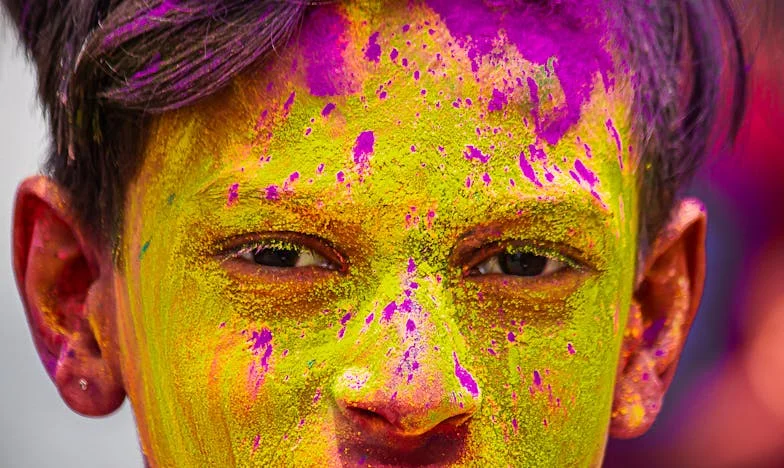The Man With the Tattered Jacket: A Story of Kindness and Secrets on Main Street
“You can’t keep giving him food, Emily! We barely have enough for ourselves!” My mother’s voice cut through the misty morning as I handed a half sandwich to the man sitting cross-legged on the sidewalk. His hands trembled as he took it, his eyes never quite meeting mine.
“Mom, he needs it more than I do,” I whispered back, glancing at the man’s battered sneakers and the faded Army jacket that couldn’t hide how thin he’d gotten in the last few weeks.
My mother sighed, her gaze flicking from me to the man and back. “You’re too soft for your own good.”
But I couldn’t help it. Ever since Dad left, I’d felt like I had to make up for something—maybe for the emptiness at our kitchen table, or the way Mom’s hands shook as she counted every penny from our little food cart on Main Street, just outside Dayton, Ohio. Every morning, I set up the cart before sunrise, selling breakfast burritos and coffee to sleepy commuters. And every morning, he was there. Always in the same spot, always silent, except for a murmured “thank you” when I handed him something to eat.
The town called him Crazy Joe, but I never learned his real name. Some kids threw rocks at him. Others crossed the street when he shuffled by. I just saw a tired man with a limp and sad eyes—someone who’d seen better days. Maybe someone like my dad, who vanished after getting laid off, leaving Mom and me with his debts and the echo of his laughter.
One morning, a cold drizzle swept through Main Street. I pulled my hoodie tighter, shivering as I set up the cart. The man wasn’t in his usual spot. I felt a sharp pang of worry. Halfway through the morning rush, I saw a group of teenagers laughing and nudging each other, circling around the alley nearby. My heart dropped. I left the cart and hurried over.
He was on the ground, his jacket torn, blood trickling from a cut above his eyebrow. The kids scattered when they saw me. “You okay?” I asked, kneeling beside him.
He tried to smile. “Just a little misunderstanding.”
I helped him up, ignoring my own shaking hands. “Come with me. I’ll get you cleaned up.”
Back at the cart, Mom’s eyes widened. “Emily! What are you—”
“Mom, please,” I begged, grabbing the first aid kit from under the counter. She pursed her lips but didn’t stop me. I dabbed at the blood, noticing a faded tattoo on his wrist—an eagle clutching arrows.
He caught me looking. “Army. Long time ago.”
Mom’s voice softened. “You served?”
He nodded. “A lifetime ago. Lost my leg to an IED in Afghanistan. Lost everything else when I got home.”
My heart ached. “What’s your name?”
He hesitated, then whispered, “John. John Miller.”
That day, something shifted. Mom made him a coffee, pouring in extra cream. She still watched him closely, but her voice was kinder. I started sitting with John during my lunch breaks, listening to his stories about sandstorms and brothers-in-arms, about the nightmares that never left. He never asked for anything. He just seemed grateful for company, for a little warmth.
Rumors spread. Some customers stopped coming, muttering that we were crazy to let a beggar hang around. Others dropped a few dollars in the tip jar, nodding at John. Mom started worrying about the bills. “We can’t lose business, Emily,” she said one night, voice tight with fear.
I snapped. “He’s a person, Mom! He’s not hurting anyone!”
She buried her face in her hands. “We’re barely getting by. If this keeps up, we’ll lose the cart. We’ll have nothing left.”
That night, I lay awake, torn between guilt and anger. Was I risking everything for a man I barely knew?
The next morning, I almost didn’t stop for John, but the sight of his empty spot made my chest ache. I found him behind the library, shivering. “Come back to the cart,” I pleaded. “Please.”
He shook his head. “I don’t want to cause you any more trouble.”
Tears stung my eyes. “You’re not trouble. You’re my friend.”
He looked away. “I wasn’t always a good man. Made mistakes after the war. Lost my family. My daughter… she won’t talk to me. Sometimes I think I deserve this.”
I squeezed his hand. “Everyone deserves a second chance.”
Later that day, a woman in a crisp suit approached the cart. She introduced herself as Sarah Miller—John’s daughter. “I’ve been looking for him,” she said, her eyes red-rimmed. “Thank you for taking care of my dad.”
John froze when he saw her. There were tears, apologies, words that caught in throats. I stepped back, feeling like an intruder in someone else’s miracle.
After Sarah took John home, the cart felt lonelier. But something had changed in me. I realized kindness isn’t always safe or easy—but it’s always worth it. Mom hugged me that night, whispering, “You did good, Em.”
Now, when I see someone sitting alone on the sidewalk, I remember John. I wonder: How many people do we pass by, never knowing the battles they’ve fought? If you were in my shoes, would you have done the same?
